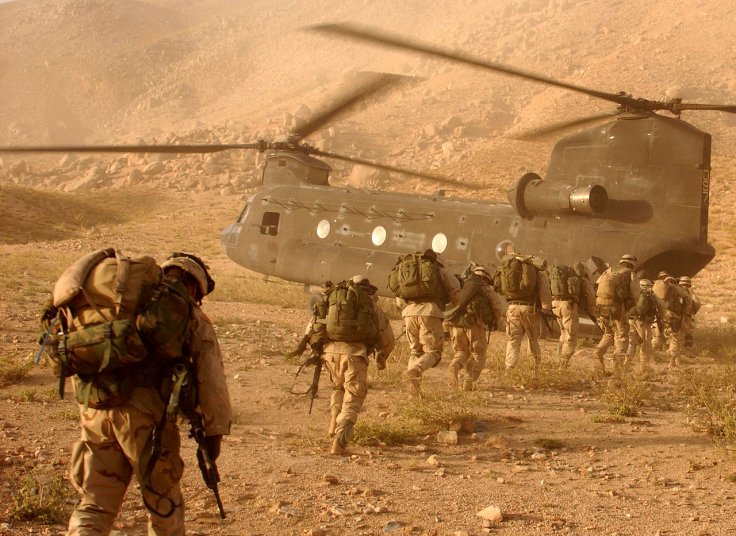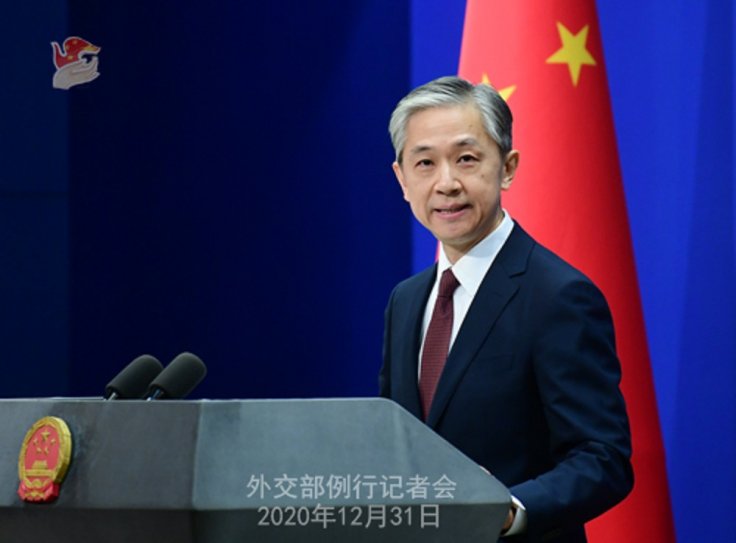The Trump Administration has been at loggerheads with China. A trade war, allegations of a cover-up related to Coronavirus pandemic and cyber-espionage, the Trump Administration in the last four years has labeled multiple charges against Beijing. But now, according to a yet-to-be-confirmed intelligence report, China allegedly put bounties on American soldiers in Afghanistan.
The unconfirmed intelligence report was conveyed to US President Donald Trump verbally on December 17 by national security adviser Robert O'Brien. As per two officials in the knowhow, China allegedly paid "non-state actors" to kill US soldiers in Afghanistan. Trump now plans to declassify the intelligence report soon.
"The US has evidence that China attempted to finance attacks on American servicemen by Afghan non-state actors by offering financial incentives or 'bounties'," an official told Axios, adding that US officials were corroborating other intelligence findings to confirm the report.
However, the official refused to elaborate if he was referring to the Taliban militants or other groups. Furthermore, the officials did not provide an exact timeline of such bounties but said it came after the US-Taliban agreement in February.

US-Taliban Peace Deal
In an attempt to withdraw US troops from Afghanistan, the Trump Administration signed a peace agreement with the Taliban on February 29 in Doha, Qatar to bring peace to the country. The terms of the deal included US troop withdrawals in exchange for Taliban preventing al-Qaeda operations in its controlled area. The agreement was supported by Russia, China and Pakistan even though it did not include the Afghanistan government.
As per the intelligence report, China put the bounties shortly after the agreement. While there has been a barrage of attacks in Afghanistan following the deal, no American has died as a result of any combat-related casualties since then. Following the agreement, four US soldiers have died — all in accidents — making the intelligence report problematic.
Why Is China Involved in Afghanistan?
While China was not initially involved in the Afghanistan crisis, Beijing has slowly increased its presence in the war-torn nation over the years. Since 2007, the British and US governments have complained about Chinese-made arms in Afghanistan. According to a BBC report in 2007, the Taliban militants were using Chinese-made weapons to attack British troops.
A week ago, Afghan security officials also busted a Chinese spy ring. Afghanistan National Directorate of Security (NDS) detained 10 Chinese nationals for allegedly operating a terror cell as per a Hindustan Times report on December 25. According to reports, China's recent interest in Afghanistan seems to be related to Beijing's attempt to prevent Chinese Muslims (Uyghurs) from using it as a stage for an uprising.

'Nothing but Fake News'
Beijing, however, has dismissed the report, calling it "nothing but fake news". On Thursday, during a media briefing, China's Foreign Ministry spokesperson Wang Wenbin said it was aimed to smear China.
"It only indicates how crazy some people have gone to taint China's image and damage China-U.S. relations. We have never started a war with others, not to mention paying non-state actors to attack other countries. We also uphold the principle of non-interference in other countries' internal affairs, support Afghanistan's peace and reconciliation process, and do not get involved in the internal conflicts in Afghanistan," he said.
However, unconfirmed reports of bounties on US troops in Afghanistan is not new. In June 2020, it was revealed that Russia had paid Taliban militants to kill US soldiers in Afghanistan. But General Frank McKenzie, the commander of US forces in Afghanistan, said that the intelligence report was far from conclusive.
"I found what they presented to me very concerning, very worrisome. I just couldn't see the final connection, so I sent my guys back and said, look, keep digging. I just haven't seen anything that closes that gap yet. It just has not been proved to a level of certainty that satisfies me. But it's not a closed issue," he told NBC News.









